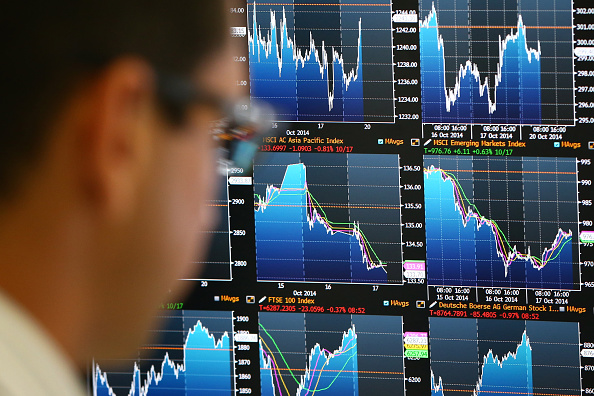[The Epoch Times, December 27, 2022](The Epoch Times reporter Takasugi compiles and reports) A British consulting firm predicts in its annual world economic rankings that although the global economy will surpass US$100 trillion for the first time in 2022, the Policymakers will continue to fight soaring prices, and the global economy will stagnate in 2023.
Kay Daniel Neufeld, director and head of forecasting at the UK’s Center for Economics and Business Research (CEBR), said: “In response to higher inflation The world economy is likely to face a recession next year due to the measures to raise interest rates due to inflation.”
The report also said: “The battle against inflation has not yet been won. We expect central bankers to stick to their previous (rate hike) stance in 2023, despite the high economic costs of doing so. Lowering inflation to a lower rate The cost of comfort levels has dimmed the outlook for economic growth for years to come.”
The findings are more pessimistic than the latest forecasts from the International Monetary Fund (IMF). The agency warned in October that more than one-third of the world economy will contract, and there is a 25% chance that global GDP growth will be below 2% in 2023. It defines the situation as a global recession.
Still, global gross domestic product (GDP) will double by 2037 as developing economies catch up to wealthier ones. East Asia and the Pacific will account for more than one-third of global output by 2037, while Europe’s share shrinks to less than one-fifth.
The Center for Economics and Business Research’s study was based on data from the International Monetary Fund’s World Economic Outlook report and used an internal model to forecast the outlook for economic growth, inflation and exchange rates.
Now, according to the center’s forecast, China may not overtake the United States as the world‘s largest economy until 2036 at the earliest – six years later than previously thought. This reflects the fact that China’s Covid “zero” policy and rising trade tensions with the West have both slowed China’s economic expansion.
Initially, the Center for Economics and Business Research had projected that the rankings of the world‘s largest economies between the United States and China would switch in 2028. But in last year’s league table it pushed back the deadline for that forecast to 2030. Now, it’s again postponing the date when China’s economy could overtake the U.S.’s in size, arguing that the crossover may not come until 2036. But it noted that the deadline could be extended further if Beijing tries to rein in Taiwan and faces retaliatory trade sanctions.
The Center for Economics and Business Research pointed out: “The consequences of the economic war between China (the Communist Party of China) and the West will be several times more serious than what we saw after Russia attacked Ukraine. It is almost certain that the world economy will be sharply affected by this. Recession, inflation will rear its head.”
The research center also emphasized: “An economic war with the West will be many times more damaging to China, which is likely to undo all its attempts to lead the world economy.”
In addition, the Center for Economics and Business Research predicts that:
- India will become the third largest economy in the world by 2032 and the third $10 trillion economy by 2035;
- In the next 15 years, the UK will remain the sixth largest economy in the world, and France the seventh largest. But due to “a lack of growth-oriented policies and a lack of clarity about its role outside the EU”, the UK will no longer grow faster than its European counterparts;
- Emerging economies with natural resources will get a “substantial boost” as fossil fuels play a major role in the transition to renewable energy;
- The global economy is still a long way from a per capita GDP of $80,000 after decoupling carbon emissions from growth. This means that further policy interventions are needed to achieve the goal of limiting global warming to just 1.5 degrees above pre-industrial levels.
Responsible Editor: Ye Ziwei#
